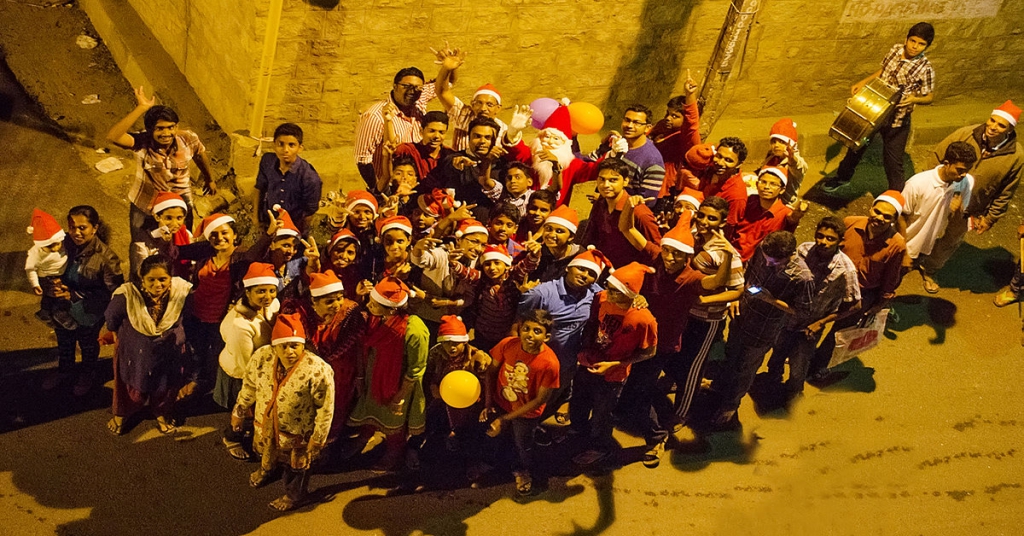It could have been said a long time ago, but Cardinal Baselios Cleemis, the president of the Catholic Bishops Conference of India was not too late in saying the faith of the Christian community has become shaky in the wake of increased attacks on Christians and members of the clergy. There was more he could perhaps have said as he listened two Catholic priests and 30 seminarians who had a close brush with death in Satna, Madhya Pradesh, where they had gone to sing Christmas Carols, but were assaulted, their cars burnt, and to rub in the political reality of the day, they found themselves in jail on charges of fraudulent and forcible conversion of local people to Christianity.
It was a ridiculous tableau. But a dangerous one. India has found 2017 a year of hate, and bloodshed. With elections in Gujarat, and more coming in the new year ending in the general elections in 2019, the atmosphere is already surcharged. The Prime Minister, Mr Narendra Modi, has led from the front in radicalising his vote bank with his challenge to the Congress and the opposition, asking them “do you want a Ram Mandir, or not?” Muslims and Dalits face lynching at the hands of self-styled Gau Rakshaks, or cow protectors, almost daily, sometimes even in the national capital New Delhi. With impunity at its peak, and much of the young cadres of the police force indoctrinated in the Hindutva theology, it is the Dalit, the Muslim and the Christian victim of violence who finds himself in jail.
“The anxiety of the religious minorities is increasing because of the lack of confidence in the administration. So, the onus is on the government to bring back the confidence of religious minorities.”
Every Christmas season these last twenty years, since the National Democratic Alliance under the great Mr. Atal Behari Vajpayee took the reins of power in New Delhi – they already were rulers in many of the provinces, or States – Christians have their Joy of Christmas mixed with just a tinge of fear.
Churches across the countries now have more closed circuit TV and long lengths of bared or blade wire on their high walls. Police, many armed, will be deployed in front of major churches in the National Capital, and elsewhere. It is the new normal. In Kandhamal in Odisha, scene of two rounds of a systematic pogrom in 2007-08 – 120 killed, scores raped, 320 churches burnt, 6,000 houses demolished and 60,000 Christians forced to flee by hoodlums of the collective Sangh Parivar under the benign gaze of local police and civil officials – an assertive survivor community celebrates the birth of their Saviour hoping the police around them will protect them, just in case, and not turn on them.
Impunity reigns, drawing strength from Mr Modi who infamously made longer Christmas into Good Governance Day, and his patron, Mr Mohan Bhagwat, the RSS chief, proclaiming that everyone in India is a Hindu, or else. His lieutenants have translated that into hate speech calling for action – violence ranging from a thrashing of a priest to the molestation of a woman, or a full-bodied assault that threatens death.
More than 700 cases of attacks on Christians were reported on the United Christian Forum (UCF) toll free helpline number 1800-208-4545 since 2014. Last year, 216 incidents were recorded and this year 216 incidents have already been reported as on date.
Out of 29 states in India, at least 19 regularly witness attacks on Christians. Tamil Nadu tops the list with 41 incidents as on November 30th followed by Chhattisgarh (39) Uttar Pradesh (27), Madhya Pradesh (22), Maharashtra (16).
The Modi Government admitted in Parliament on the 7th of February this year that over the last three years, over 278 persons, most Muslims, have been killed and over 6,500 people were injured due to communal violence in over 2000 incidents. The World Watch List 2017, ranks India 15th in the list of countries where the practice of the faith is a high-risk activity. India was ranked 31 only four years ago. the police filed complaints only 43 criminal complaints or First Information Reports (FIRs) despite the information about attacks against Christians being provided repeatedly to them in over 200 incidents.
The data is incomplete.
The fear high.
But then, Christmas is also a reminder of Herod and Cesar.
That it will pass off with minimal violence is a test of India’s democratic and secular tradition.
((John Dayal is a human rights and political activist. He is a member of the National Integration Council (NIC) of India, Secretary-General of the All India Christian Council and a past president of the All India Catholic Union.))
*** Feature Image by Prathyush Thomas from Wikipedia

